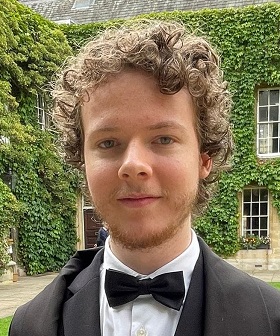Alex Ghorbal, amg222@cam.ac.uk
United Kingdom
Physics, Christ's
PhD thesis: Photonic cluster states and nuclear memory for ultrafast quantum networks using semiconductor
quantum dot spins
Research interests:
1. Quantum optics.
2. Spin-photon interfaces.
3. Quantum dots.
4. Many-body quantum interactions.
My PhD focuses on the optical control of nuclear spin waves in quantum dots, mesoscopic regions of semiconductor in which an electron can be quantum confined. It has already been shown that strain-induced enhancement of the hyperfine interaction between the electron and nuclear ensemble allows for an optical interface between them. However, externally applying strain in otherwise strain-free systems such as GaAs quantum dots grown by droplet epitaxy could achieve much longer coherence times and enable finer control in the excitation and detection of nuclear spin waves. The nuclear ensemble could then constitute an isolated many-body system or deterministic quantum memory helping to realize a quantum network. Furthermore, there is the possibility of coupling the quantum dot to a microcavity for which the emission intensity and collection efficiency could be greatly improved via the Purcell effect, facilitating the production of photonic cluster states, highly entangled states of multiple photons qubits.
Who or what inspired you to pursue your research interests?
I was inspired to pursue my research interests primarily by my undergraduate experience in which I thoroughly enjoyed taking courses in topics such as quantum information science and many-particle quantum mechanics, as well as undertaking research in similar areas. In addition, there exists a wealth of possible revolutionary advancements in quantum optics and related fields, evidenced for example by the recent Nobel Prize in Physics for the use of photonic entanglement in establishing the violation of Bell inequalities, and I am keen to play a part in making such discoveries in the future.

